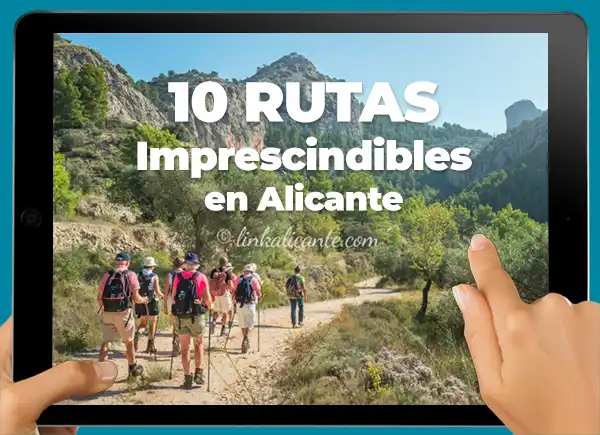Cova Tallada: Complete Guide for your visit
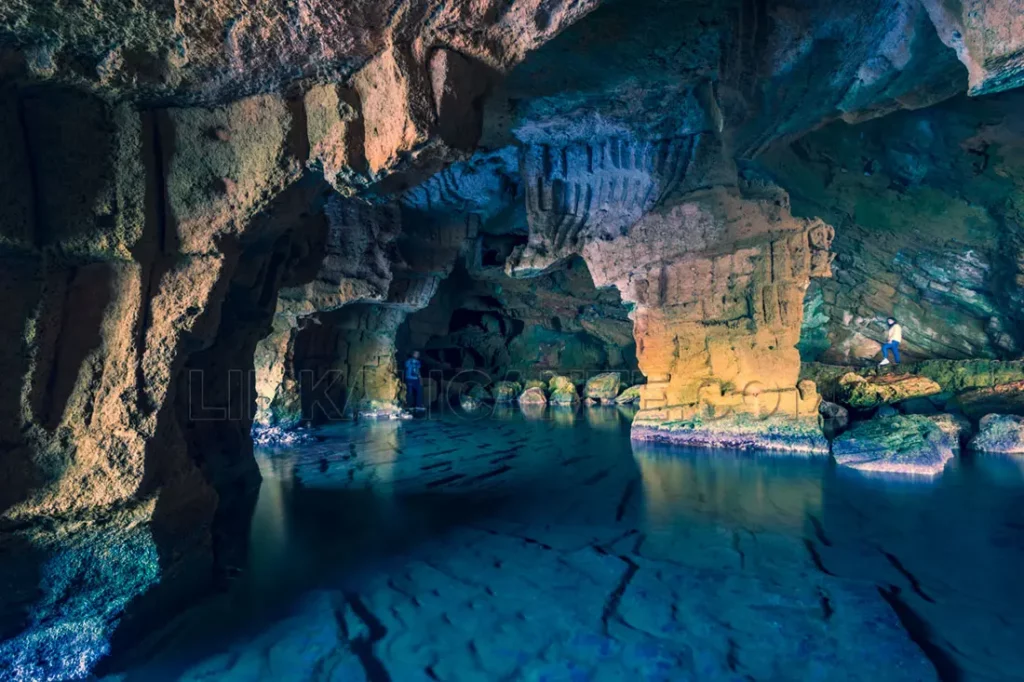
The Cova Tallada is a spectacular cave at sea level, located in the cliffs of Cabo de San Antonio, between Denia and Javea.
The cave is half natural and half artificial, since centuries ago it was excavated by humans to extract rough stone for construction.
The Cova Tallada has many rooms, some of which are flooded by seawater. The deepest part can be visited with the help of a flashlight.
Guide to discover the Cova Tallada
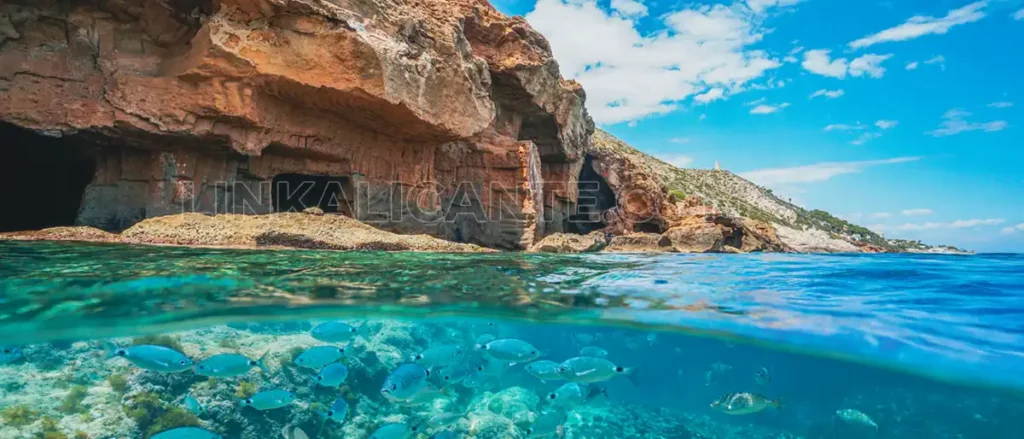
The Cova Tallada is located in the municipality of Jávea / Xàbia (Alicante), at the foot of the cliffs of Cabo de San Antonio, a marine reserve that is part of the Montgó Natural Park. Visits are regulated in season and there are regulations to protect it.
It is a huge sea cave with several rooms. It was excavated by man centuries ago to extract large blocks of stone used in the construction of buildings such as the church-fortress of Xàbia.
The cave has different openings, larger or smaller, like doors to the sea. Some of the rooms are flooded by seawater, so you can swim or kayak into them.
For all these reasons, we can say that the Cova Tallada is one of the most fascinating places in the Valencian Community.
In high season (April, May and June-October) there is limited capacity and it is necessary to reserve in advance to gain access, either on foot, kayak or paddle.
How to get to the Cova Tallada?
There are several ways to get to the Cova Tallada. By way of summary, they are as follows:
Walking route from Dénia
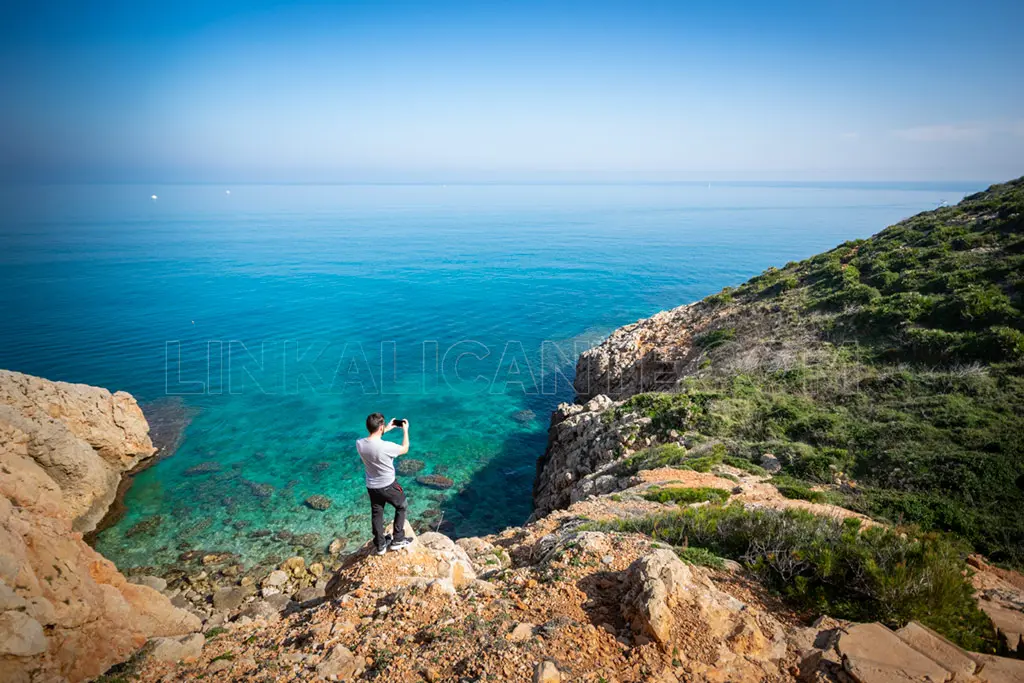
From Les Rotes. The most common, although there are difficult points. All you need is your hiking gear and to book in advance.
If you are walking, the only entrance to the Cova Tallada is down the rocks with the help of a chain. The ground is very slippery and you have to help yourself with your hands, almost as if you were climbing. It requires good footwear and can only be entered when the sea is calm. Find out more here:
Walking route from Jávea
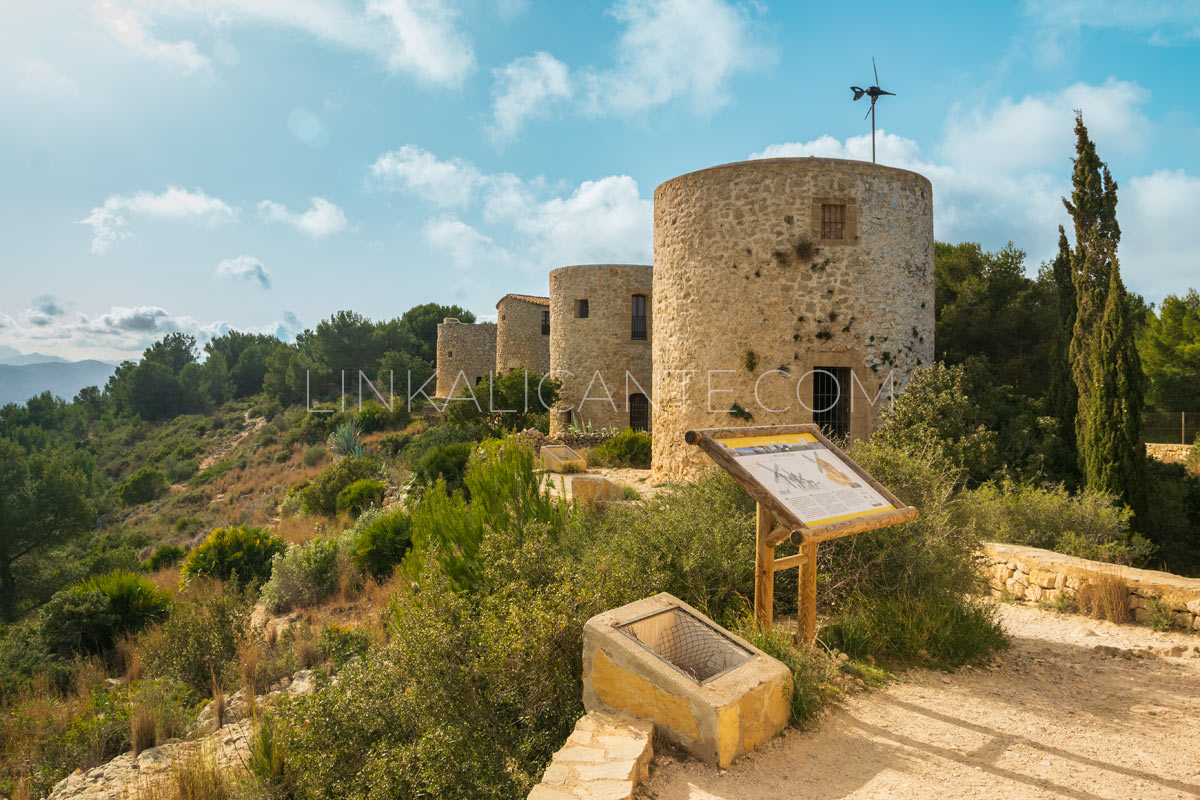
It can be reached on foot from the port of Jávea, although it is a longer, more difficult and more demanding route. I do not recommend it for summer, as it can be very hot. Find out more here:
Kayak or paddle surfing route
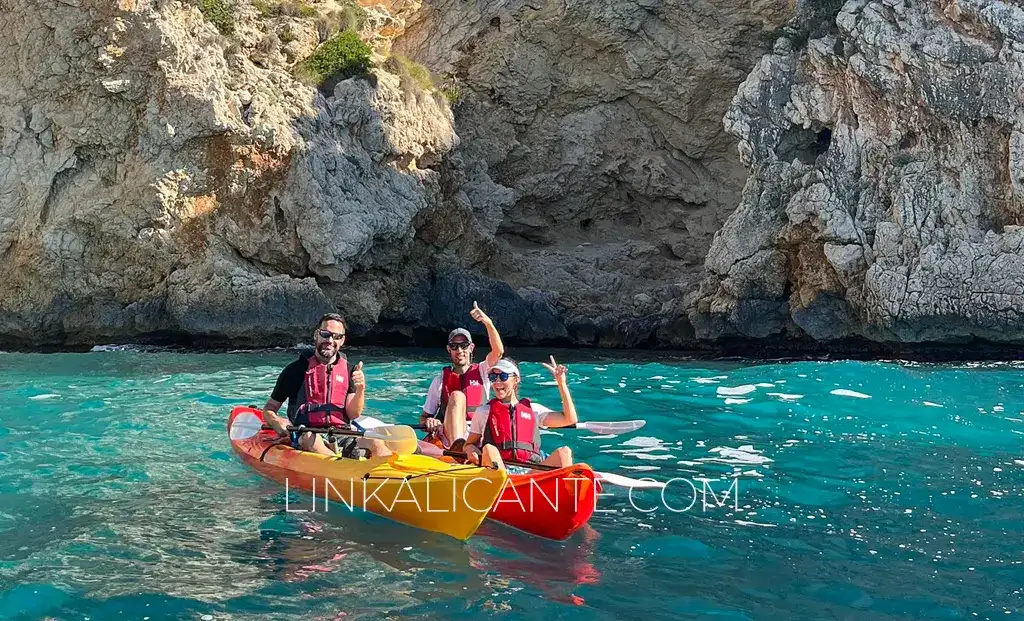
If you go by kayak, you don’t need to go down the chain, you can enter directly from the sea, so it is easier to go with children.
In this case, I recommend booking with an active tourism company. Find out more here:
Catamaran Ride
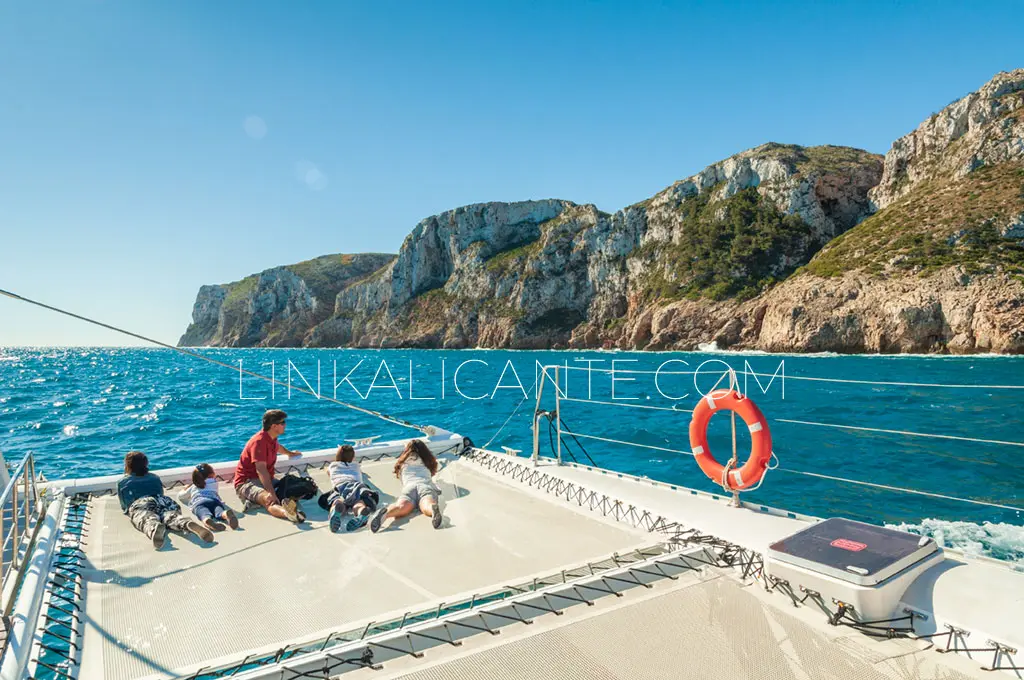
For people who cannot do the route on foot or by kayak, this alternative is highly recommended, as it navigates close to the cliffs. You can see the large entrance to the cave from a distance. It is a beautiful walk and also this is an area of passage of cetaceans, so from time to time they can be observed.
4. Recommendations for the Visit
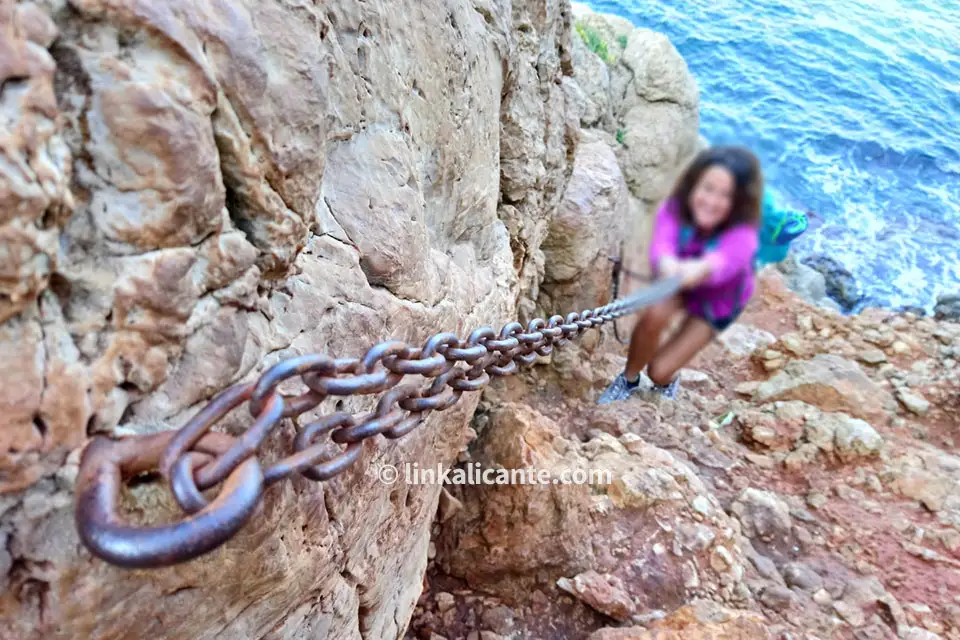
RESPECT THE ENVIRONMENT: avoid leaving trash, cigarette butts or any other trace in your path: keep in mind that many people visit the cave every day. Remember that you are in a Marine Reserve . Thanks!!
✅ The path to the Cova Tallada presents very uneven rocky terrain: use hiking shoes or, at least, sneakers with good soles.
✅ Keep your hands free and don’t go too heavily loaded or you won’t be able to get down the chain or suffer a fall.
⚠️ The most complicated part of the route is the access to the cave. There are very slippery wet rocks. Use extreme caution at this point.
⚠️ Danger: once in the cave, there are falls at different levels and potentially dangerous areas for children and adults.
⚠️ Danger: do not attempt to enter the cave if there is a sea storm. We recommend you check the weather forecast a couple of days before your visit. Note the wind and the height of the wave.
✅ If you plan to swim, wear booties or water shoes to protect your feet from the sharp rocks.
✅ If you go in summer, you will enjoy snorkeling. In this article you have more places to snorkel in Alicante.
What to do in the Cova Tallada?
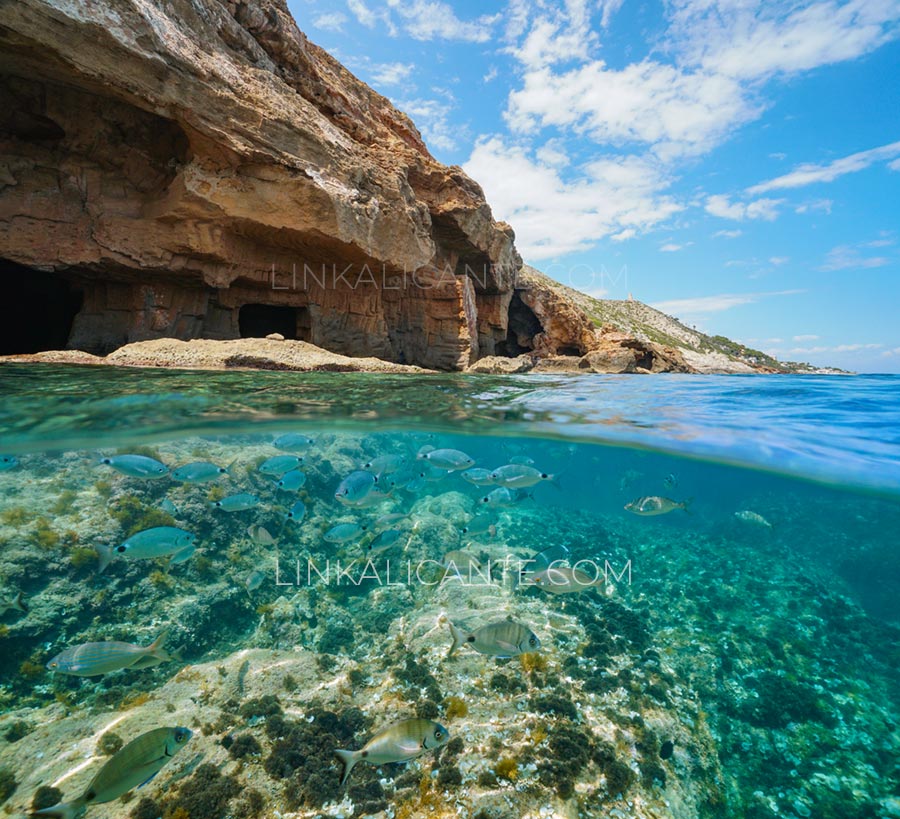
Visiting the cave
If we go with flashlights we can visit, walking, the deepest part of the cave. Be very careful, watching where you step, as there are possible drops and ramps. Be very careful also not to hit your head. Never enter alone.
Snorkeling
The Cova Tallada is an ideal place to combine hiking with snorkeling (diving with goggles, snorkel and fins). The Cabo de San Antonio Marine Reserve ( Montgó Natural Park) gives rise to clean and transparent waters. Of course, it will depend on the waves of previous days, as well as the influx of visitors that day. Also watch out for jellyfish , as they are common in the area. Here you can see more places to snorkel in Alicante.
Visit the Gerro Tower
If you go on foot to the Cova Tallada, it is worth taking the opportunity to visit the Torre del Gerro. Located at the top of the cliffs of Les Rotes, in a point with an excellent panoramic view of the coast.

Frequent questions
7. History of Cova Tallada
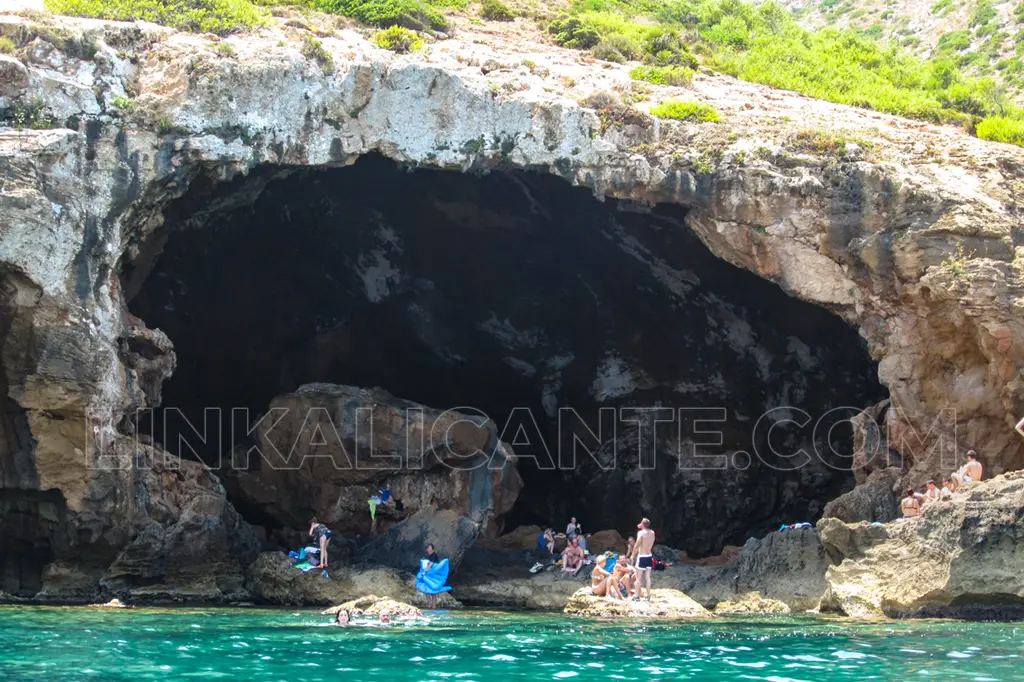
The Cova Tallada is a large sea cave, half natural, half excavated. There is evidence that it was used as an old quarry of rough stone (sandstone) since the sixteenth century, hence the word tallada, in Valencian (cut).
It is not known for certain when the Cova Tallada began to be used as a quarry, but candles have been found inside dating from the 11th-12th centuries, as well as an inscription engraved in the rock that confirms the visit of King Philip III in 1599.
Tallada is a word in Valencian whose translation would be “cut”. As we have already told you, this place was an important quarry of rough stone (old fossilized dunes). The stone was quarried by cutting it into large blocks, which were loaded onto ships for easier transportation.
Some emblematic buildings of the Marina Alta, such as the church-fortress of Sant Bertomeu in Xàbia, the castle of Dénia or the windmills of Cap de Sant Antoni were built with the rough stone of the Cova Tallada.
Don’t miss: What to see and do in Jávea.
In a more modern era, some accounts speak of the Cova Tallada being used as a hiding place for submarines during World War II.
The Cova Tallada is, therefore, a marvel that is part natural and part artificial, the result of its use as a quarry.
Cova Tallada in Winter
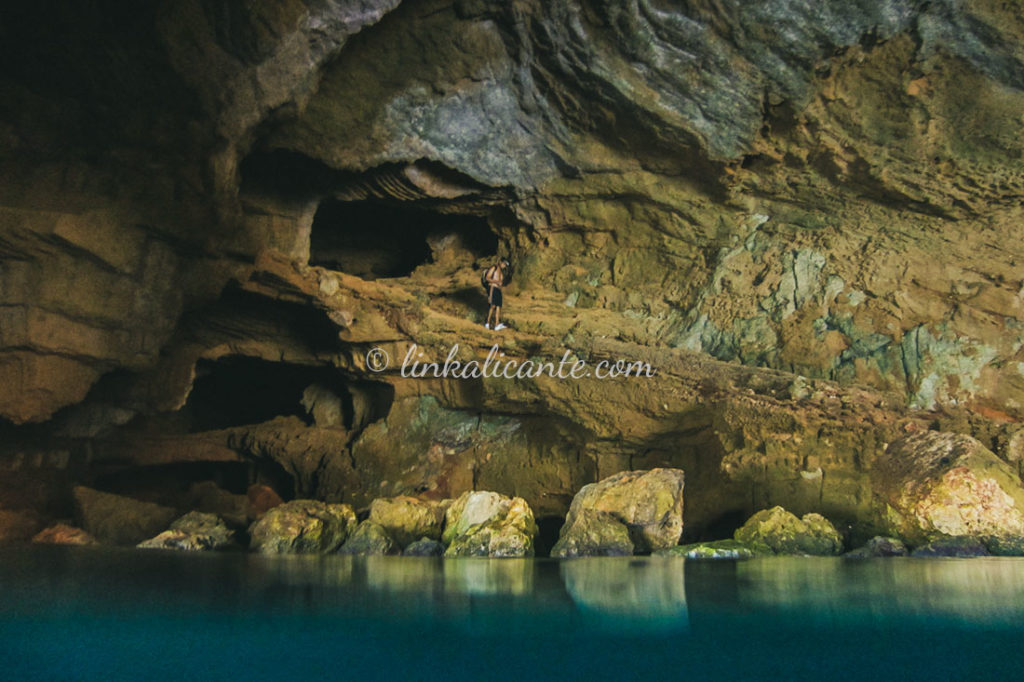
La Cova Tallada is a very, very impressive place. Undoubtedly we are in front of one of the most spectacular enclaves of the Costa Blanca. In recent years it has become very popular and, in order to protect it, visits in temparada have been regulated since 2019.
My personal recommendation is that, if you can, visit this wonder out of season. This way you will find it calm and quiet. I suggest you access it for what it is: a magical place , full of charm, full of history and mysteries.
Try to cross its threshold in silence , letting the murmur of the waves be the only sound that echoes in the high vaults of the cave. Listen… and let yourself be invaded by the history of this place, which will transport you to past centuries, when the master stonemasons carved the stone with the sweat of their brow…
You will find different rooms and galleries, from some very spacious and with high ceilings -between 12 and 15 meters- to others that are narrower and claustrophobic. The outermost rooms are partially flooded as they are open to the sea through a kind of doorway carved in the rock.
The route to the deepest part is about 300 meters and you will need to use a flashlight to reach the end. Be very careful because the ground is uneven and there are falls.
If you remain silent, you will hear a trickle of water coming from different filtrations that are collected in stone basins. This water is drinkable and was drunk by the quarrymen who excavated the cave long ago.
Do not miss...
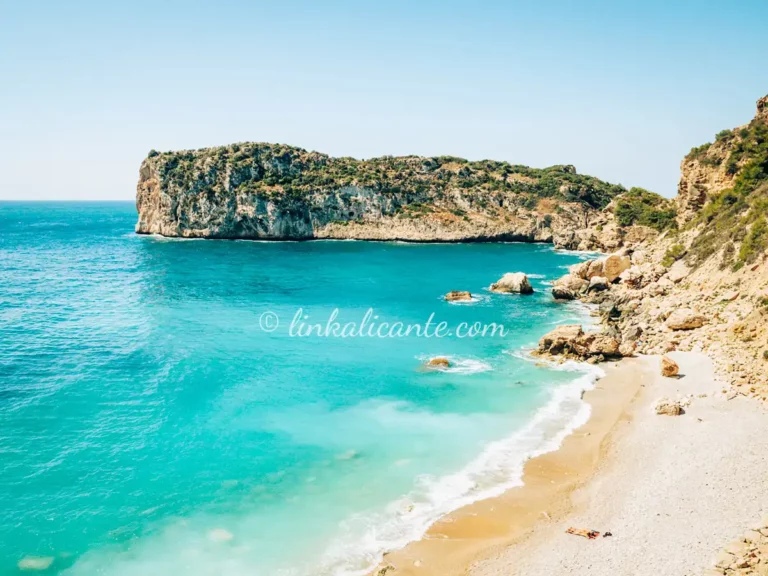
The most beautiful: 7 Coves of Jávea that will conquer you
Join us to know the wonderful coves of Jávea / Xàbia, undoubtedly the most beautiful and natural of the entire province of Alicante.
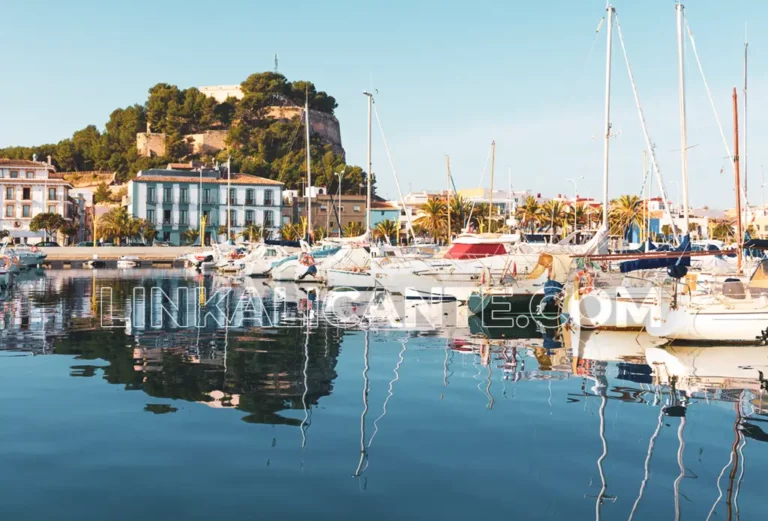
24 Best things to do and see in Dénia
At the foot of the Montgó Natural Park, Dénia is a fascinating city that combines history, culture, nature and gastronomy. Are you coming to discover it?
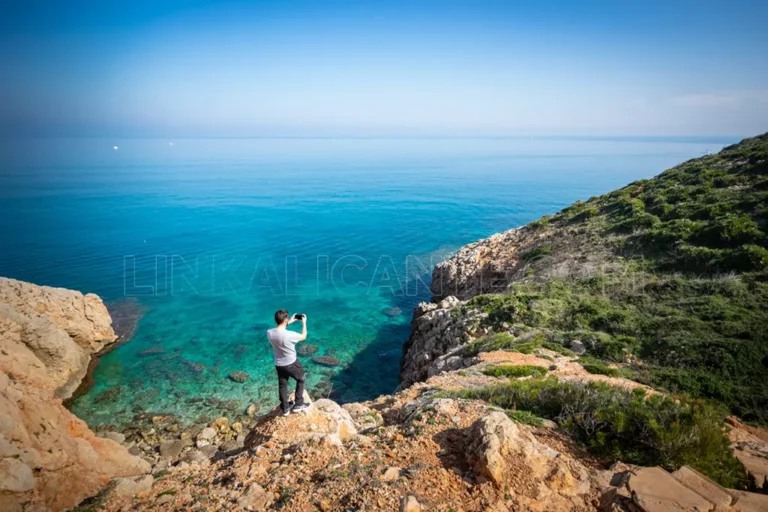
20 Hikes next to the sea in Alicante
Discover our selection of hiking trails on the Costa Blanca: the privilege of combining beach and mountain on the same route; this is the province of Alicante!
This article about the hiking route to the Cova Tallada Article first published on November 30, 2009. Last updated: January 2023.
Did you like it? Thank you
Haz clic en una estrella para puntuar:
Promedio de puntuación 0 / 5. Recuento de votos: 0
Sin votos por ahora.
Free Digital Guide
Subscribe to LinkAlicante and receive for free the digital guide with 10 essential routes in Alicante.

